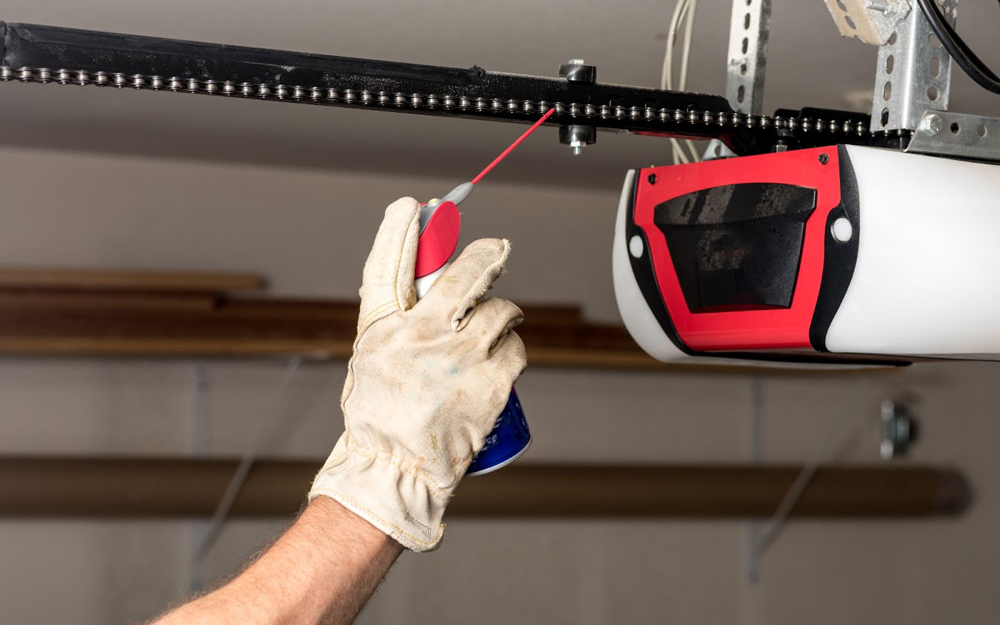A garage door opener is a convenient and essential component of your home. It ensures smooth operation and reliable access to your garage. However, like any other household appliance, it is subject to wear and tear over time. In this post, we will discuss the typical lifespan of a garage door opener, the most common issues homeowners face, and how to determine whether a repair or replacement is the best course of action.
The Typical Lifespan of a Garage Door Opener
Garage door openers generally have a lifespan of 10 to 15 years, depending on the model, usage, and maintenance. Proper care and regular inspections can help extend the life of your opener. To keep your opener in good working condition, make sure to maintain your garage door regularly, and lubricate the moving parts as needed.
Common Issues Homeowners Face
As your garage door opener ages, it may develop issues that can affect its performance. Here are some of the most common problems homeowners face with their garage door openers:
- Remote or Wall Switch Not Working: This could be due to dead batteries, signal interference, or a faulty switch or remote. It is usually an easy fix, but sometimes it might require professional help.
- Door Doesn’t Fully Open or Close: This issue can be caused by misaligned sensors, a malfunctioning motor, or issues with the garage door itself, such as broken springs or worn-out rollers.
- Grinding or Humming Noises: These noises can indicate a problem with the motor, gears, or other internal components. They might also suggest that the opener needs lubrication.
- Door Reverses Before Touching the Ground: This usually occurs when the close-force setting on the opener is set too high, or there’s an obstruction in the door’s path.
- Opener Struggles to Lift the Door: This could be due to worn-out springs, a malfunctioning motor, or an improperly balanced door.
When to Repair Your Garage Door Opener
In many cases, issues with your garage door opener can be resolved through simple repairs. Here are some scenarios where a repair might be the best course of action:
- Minor Issues: If you’re experiencing problems with the remote control or wall switch, it’s often an easy fix. Replacing the batteries or reprogramming the remote can usually resolve the issue.
- Misaligned Sensors: If your garage door isn’t closing properly, it might be due to misaligned sensors. Adjusting them should fix the problem.
- Lubrication: If your garage door opener is making grinding or humming noises, applying lubrication to the moving parts might help.
- Close-Force Setting Adjustment: If the door reverses before touching the ground, you can try adjusting the close-force setting on the opener.
However, some issues are more complex and might require professional assistance. If you’re unsure about the severity of the problem, it’s always best to consult a garage door expert.
When to Replace Your Garage Door Opener
There are certain situations where replacing your garage door opener is the most efficient and cost-effective solution:
- Aging Opener: If your garage door opener is nearing the end of its lifespan (10-15 years), it might be time to consider a replacement. Newer models offer increased safety features, better efficiency, and improved functionality.
- Frequent Breakdowns: If your opener frequently needs repairs, it might be more cost-effective to replace it rather than continually paying for fixes.
- Major Mechanical Issues: Severe problems, like a burnt-out motor or broken gears, may warrant a complete replacement.
- Safety Concerns: Older models might lack important safety features like photoelectric sensors or auto-reverse mechanisms. If your current opener doesn’t have these features, you should replace it to ensure your family’s safety.
- Noise Reduction: Newer models are often quieter than older ones. If noise is a concern, consider upgrading to a belt or direct-drive opener.
Before deciding on a repair or replacement, consider the age of your opener, the cost of the repair, and the potential benefits of a new opener. If you’re unsure, consult with a trusted garage door professional who can provide a thorough inspection and advice.In conclusion, understanding the lifecycle of your garage door opener can help you maintain its functionality and maximize its lifespan. Regular maintenance, timely repairs, and knowing when to replace are all essential in ensuring a smooth-operating and long-lasting garage door opener. For any further queries or assistance, don’t hesitate to contact us at Blue Chip Garage Doors.

